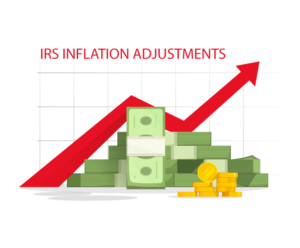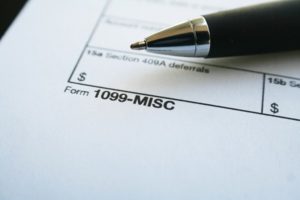Taxpayers Have Until April 17 to File and Pay

Taxpayers Have Until April 17 to File and Pay
Taxpayers across the nation will have until Tuesday, April 17, 2007, to file their 2006 returns and pay any taxes due, the Internal Revenue Service announced today.
Taxpayers will have extra time to file and pay because April 15 falls on a Sunday in 2007, and the following day, Monday, April 16, is Emancipation Day, a legal holiday in the District of Columbia.
“This year, taxpayers have additional time to file and pay beyond the traditional April 15 deadline,” said IRS Commissioner Mark W. Everson. “As we always do, we encourage taxpayers to get an early start on their taxes to make sure they have plenty of time to accurately prepare their return.”
This means the entire country has an April 17 deadline. Previously, the April 17 deadline applied just to individuals in the District of Columbia and six eastern states who are served by an IRS processing facility in Massachusetts, where Patriots Day will be observed on April 16.
The April 17, 2007 deadline will apply to any of the following:
- 2006 federal individual income tax returns, whether filed electronically or on paper.
- Requests for an automatic six-month tax-filing extension, whether submitted electronically or on Form 4868.
- The tax year 2006 balance due to payments, whether made electronically (direct debit or credit card) or by check.
- Tax-year 2006 contributions to a Roth or traditional IRA.
- Individual estimated tax payments for the first quarter of 2007, whether made electronically or by check.
- Individual refund claims for the tax year 2003, where the regular three-year statute of limitations is expiring.
Other tax-filing and payment requirements affected by this change are described in IRS Publication 509, Tax Calendars for 2007, available on this Web site.
Most taxpayers will not have to change their plans in response to this announcement. Three out of four individual filers get refunds. Typically, returns claiming refunds are filed early in the tax season.
By law, filing and payment deadlines that fall on a Saturday, Sunday or legal holiday are timely satisfied if met on the next business day. Under a federal statute enacted decades ago, holidays observed in the District of Columbia have an impact nationwide on tax issues, not just in D.C. Under recently-enacted city legislation, April 16 is a holiday in the District of Columbia. Officials recently became aware of the intersection of the national filing day and the local observance of the new Emancipation Day holiday after most forms and publications for the current tax filing season went to print.
Even with the extra time, taxpayers can skip the last-minute rush and avoid needless mistakes by filing early, taking advantage of the speed and convenience of electronic filing, choosing direct deposit for any refunds and paying any taxes due by direct debit or credit card.
Why are taxpayers getting extra time to file and pay?
Taxpayers will have extra time to file and pay because April 15 falls on a Sunday in 2007, and the following day, Monday, April 16, is Emancipation Day, a legal holiday in the District of Columbia.
By law, filing and payment deadlines that fall on a Saturday, Sunday or legal holiday are timely satisfied if met on the next business day. Under a federal statute enacted decades ago, holidays observed in the District of Columbia have an impact nationwide, not just in D.C. Under recently enacted city legislation, April 16 is a holiday in the District of Columbia. The IRS recently became aware of the intersection of the national filing day and the local observance of the new Emancipation Day holiday after most forms and publications for the current tax filing season went to print.
Individuals in the District of Columbia, as well as in six eastern states, already had an April 17 filing date prior to this announcement because they are served by an IRS processing facility in Massachusetts, where Patriots Day will be observed on April 16. These individuals are still required to file on April 17.
Will the IRS be open on April 16?
Yes. Emancipation Day is not a federal holiday. Accordingly, IRS offices will be open, as usual, on April 16.
My IRS tax instructions say I should file by April 16, 2007. Is this correct?
This is not correct. At the time these instructions were approved for printing, IRS believed it was correct. Thus, any IRS form, instruction or publication that currently shows an “April 16, 2007” due date should now be read as “April 17, 2007.”
Who is eligible to take advantage of this provision?
Anyone who previously qualified for the April 16, 2007 deadline for filing a return, making a payment or deposit, requesting an extension or performing an act provided for under the Internal Revenue Code. Publication 509, Tax Calendars for 2007, lists many of the actions affected by this provision. This publication can be found on the IRS Web site.
Individuals in the District of Columbia, as well as in six eastern states already had an April 17 filing date prior to this announcement because they are served by an IRS processing facility in Massachusetts, where Patriots Day will be observed on April 16. These individuals are still required to file on April 17.
Among the IRS actions that qualify for the new April 17 deadline are:
- Calendar-year 2006 federal individual income tax returns, whether filed electronically or on paper (Forms 1040, 1040A or 1040EZ).
- Requests for an automatic six-month tax-filing extension on an individual return for calendar-year 2006, whether submitted electronically or on Form 4868.
- Tax-year 2006 balance-due payments, whether made electronically (direct debit or credit card) or by check.
- For calendar-year taxpayers, individual estimated tax payments for the first quarter of 2007, whether made electronically or by check. In rare cases, estimated tax payments for the second, third and fourth quarters may be affected for individuals operating on a fiscal year that is not a calendar year.
- Individual refund claims for the tax year 2003, where the regular three-year statute of limitations is expiring.
- For calendar-year taxpayers, tax-year 2006 contributions to a Roth or traditional IRA.
- Corporation income tax returns, including S corporations (Forms 1120, 1120-A and 1120S) for a fiscal year ending on Jan. 31, 2007, and any balance due.
- For a calendar-year corporation, the estimated tax payment for the first quarter of 2007. In some cases, estimated tax payments for the second, third and fourth quarters may be affected for corporations operating on a fiscal year that is not a calendar year.
- Calendar-year estate and trust income tax returns (Form 1041) and any balance due.
- For calendar-year estates and trusts, the estimated tax payment for the first quarter of 2007. In some cases, estimated tax payments for the second, third and fourth quarters may be affected for estates and trusts operating on a fiscal year that is not a calendar year.
- Calendar-year 2006 partnership returns (Form 1065).
- Annual information returns (Form 990) and unrelated business income tax returns (Form 990-T) for tax-exempt organizations with a fiscal year ending on Nov. 30, 2006.
- Calendar-year 2006 Form 990-T for certain employee trusts, retirement plans and education savings plans.
- Extension requests for any return.
- The March tax deposit for employers (generally, small businesses) required to deposit withholding taxes on a monthly basis.
- Withholding-tax deposits for larger employers, subject to the next-day deposit rule.
Other actions affected by this provision can be found in Pub. 509.
Will the April 17 deadline be the same in 2008?
No. Because of the calendar, there will not be a conflict involving Emancipation Day next year. April 15 is on Tuesday in 2008, so the normal deadline will apply. The next year that Emancipation Day could affect filing deadlines is 2011.
We hope you found this article about “Taxpayers Have Until April 17 to File and Pay” helpful. If you have questions or need expert tax or family office advice that’s refreshingly objective (we never sell investments), please contact us or visit our Family office page or our website at www.GROCO.com. Unfortunately, we no longer give advice to other tax professionals gratis.
To receive our free newsletter, contact us here.
Subscribe our YouTube Channel for more updates.

Alan Olsen, is the Host of the American Dreams Show and the Managing Partner of GROCO.com. GROCO is a premier family office and tax advisory firm located in the San Francisco Bay area serving clients all over the world.
Alan L. Olsen, CPA, Wikipedia Bio

GROCO.com is a proud sponsor of The American Dreams Show.

The American Dreams show was the brainchild of Alan Olsen, CPA, MBA. It was originally created to fill a specific need; often inexperienced entrepreneurs lacked basic information about raising capital and how to successfully start a business.
Alan sincerely wanted to respond to the many requests from aspiring entrepreneurs asking for the information and introductions they needed. But he had to find a way to help in which his venture capital clients and friends would not mind.
The American Dreams show became the solution, first as a radio show and now with YouTube videos as well. Always respectful of interview guest’s time, he’s able to give access to individuals information and inspiration previously inaccessible to the first-time entrepreneurs who need it most.
They can listen to venture capitalists and successful business people explain first-hand, how they got to where they are, how to start a company, how to overcome challenges, how they see the future evolving, opportunities, work-life balance and so much more..
American Dreams discusses many topics from some of the world’s most successful individuals about their secrets to life’s success. Topics from guest have included:
Creating purpose in life / Building a foundation for their life / Solving problems / Finding fulfillment through philanthropy and service / Becoming self-reliant / Enhancing effective leadership / Balancing family and work…

MyPaths.com (Also sponsored by GROCO) provides free access to content and world-class entrepreneurs, influencers and thought leaders’ personal success stories. To help you find your path in life to true, sustainable success & happiness. It’s mission statement:
In an increasingly complex and difficult world, we hope to help you find your personal path in life and build a strong foundation by learning how others found success and happiness. True and sustainable success and happiness are different for each one of us but possible, often despite significant challenges.
Our mission at MyPaths.com is to provide resources and firsthand accounts of how others found their paths in life, so you can do the same.
Tax Tips for Entrepreneurs
If you’re looking to start a new company in the coming year then you certainly have a lot on your mind, not the least of which is how you will get started, what will you do to market your company and what are your chances of achieving success. The concerns and issues are endless…
IRS Announces New Inflation Adjustments for 2017
While the 2016 tax year is still not quite over, the IRS has already announced some important inflation adjustments for the 2017 tax year, which taxpayers will file for in 2018. While you might be more worried about your upcoming tax return, there are some important changes to know about. However, that being said,…
IRS Changes Deadlines for 1099 Forms
It’s almost January. Are you ready for taxes? Of course, Form 1099s are an important part of any tax season, and this coming year will be no different. As a taxpayer, if you receive any kind of Form 1099 don’t ignore it. The IRS will get the same form and you will be held…
Which Stocks Stand to Gain From Trump Victory?
Which Stocks Stand to Gain From Trump Victory? News of Donald Trump’s victory on November 8th sent shockwaves around the world and initially sent the stock market down. However, the market has since stabilized and reports of a major decline have not panned out. Of course, the stock market is in constant flux and things…




